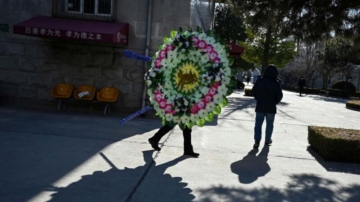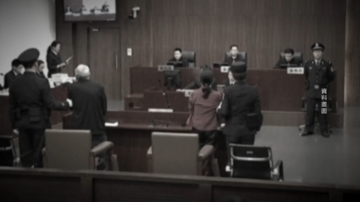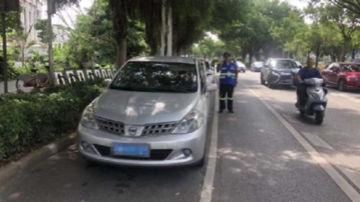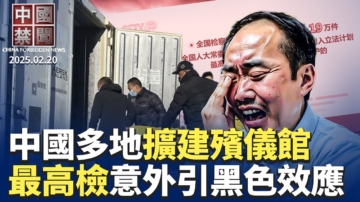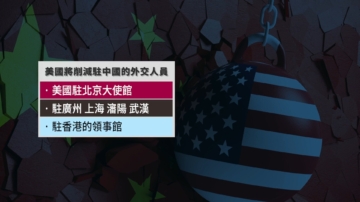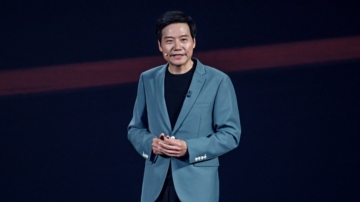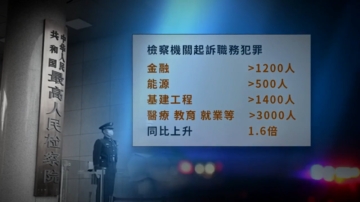【新唐人2013年06月10日訊】槍桿子和筆桿子,歷來是中共竊取政權和維護獨裁統治的兩大法寶,然而最近槍桿子開始搶佔筆桿子陣地,繼中共軍方「鷹派」 發出保衛「網絡上甘嶺」的言論後,日前,「國防大學」中將李殿仁又放出﹕微博威脅國家安全的厥詞。專家認為,現在中共猶如困在籠子裡的鬥獸,這是它陣亡前失去理智的癲狂。
7號,中共解放軍「國防大學」教授李殿仁中將,接受《中國社會科學報》採訪時說,作為新媒體代表的「微博」,已成為反體制言論的集散地,也成為顏色革命的重要戰場,其中憲政主義、新自由主義以及歷史虛無主義三股思潮,李殿仁認為,值得警惕。
美國「紐約城市大學」政治學 夏明:「中國處於亂世前夕,(各種)極端的思想都出籠了,使得中間這種溫和的討論變得不可能了,這是一個非常危險的東西,我把它叫成中共的意識形態的羊癲瘋。」
美國「紐約城市大學」政治學夏明教授指出,歷史上,希特勒和日本法西斯抬頭之前,都處在思想極端化狀態。當前,中共內部左派思想非常活躍,另一方面,民主憲政深入民心,而中共當局無法調和這兩種矛盾。
「全球自由信息運動」網站創辦人張新宇:「實際上是一幫盜賊,他們感到危機了,赤裸裸的跳出來,過去搞這些東西還講點道理,忽悠性,欺騙性,現在赤裸裸的出來,就會使更多的不明真相的人認清實質。」
早在去年,以戴旭、羅援等一批解放軍鷹派代表,已經登陸微博,併發下豪言說﹕解放軍將保衛「網絡上甘嶺」。太子黨軍官劉源和劉亞洲,日前提出的「共產黨神性論」,也備受各界指責。
夏明認為,現在中共軍隊處於極度不安狀態,「軍人干政」則是極其危險的信號。夏明說,軍人干政,往往會給社會帶來血腥的鎮壓和道德的災難。
而李殿仁認為,以「多黨制、三權分立、議會民主」為支撐政治的憲政主義,最終目地是取消中共領導﹔主張私有化的新自由主義,則是扼殺公有制和國有企業的市場效率和活力﹔而歷史虛無主義,則是用歷史細節否定中共地位和作用。李殿仁說,相關的言論在微博上大行其道,必將釀成大禍,威脅所謂國家安全。
張新宇:「實際上,這個國家的安全就是他們家的安全,微博的出現,他們感覺到對他們這幫盜賊的安全有危險,所以它就赤裸裸的出來,潛臺詞就是,我們要為我們這些盜賊搶來的財產、財富而鬥爭。」
李殿仁還提出,2011年初爆發的「茉莉花革命」及隨後引發的北非、中東革命,是西方這一新型「戰爭手段」效果的一次經典體現。他說,這也預示著西方敵對勢力,今後可能會更大規模、更廣範圍的運用這種手段。
李殿仁認為,以所謂「國防安全」為重點的新較量,已經在微博等新興媒體上全面展開。而中共需要打好這場無形的戰爭,管控微博等新媒體。
張新宇:「如果進去,去所謂的戰鬥的話,一定是失敗的,因為真理不在他們那(邊),比如說,法輪功的這個《九評》,出來多少年了,共產黨七千萬黨員,所有的都躲到陰溝裡,沒有哪個敢出來說我們來辯一辯。他們是理屈的,他們自己也知道,共產黨也知道它們犯了死罪。」
夏明表示,中共陣亡的跡象已經非常明顯,尤其思想上的混亂。而且,中共高層沒有人真正信仰共產主義,老百姓更是看穿了共產黨騙人的把戲。夏明說,中共末日跡象最明顯的表現是,中共的所謂精英們,基本上失去了創造性,而反對它的那些人創造力在不斷的增加。
採訪編輯/ 劉惠 後製/李智遠
Military Geared Up for Invisible War on Internet in China
Using military action and propaganda are prime weapons
the Chinese Communist Party(CCP) has used in illegally
taking power in China and in keeping its political rule today.
Recently, the CCP's military "hawks" have
actively entered the turf of propaganda.
Lieutenant General Li Dianren from the
PLA National Defense University, has alleged that
the existence of the micro-blog
threatens national security.
Experts interpret that today, the CCP is like a
caged animal, which acts madly before its death.
On June 7, Li Dianren, professor at the PLA National
Defense University, recently denounced microblogging.
Li told the Chinese Social Sciences Today,
an officially sponsored academic newspaper,
that Weibo (microblog), as a new media, has
become a distribution center of anti CCP criticism.
It is also a major battleground for potential
“color revolutions”, he said.
Li warned the authorities they must guard against
the three ideological trends of constitutionalism,
neoliberalism and historical nihilism in today's China.
(Pro. in Political Science, City University of New York)
Ming Xia: “China is on the eve of troubled times,
and various extremist ideas have surfaced.
This makes it impossible to take a moderate approach
to public debate, this situation is dangerous.
I call it the epilepsy of CCP ideology.”
Ming Xia reminds us that historically in Germany and Japan,
ideological extremity appeared before the
emergence of fascism.
Currently in China, the CCP's left-wing ideology
is very active,
whilst at the same time, constitutionalism has been
embraced by civil society.
Xia says that the CCP authorities face
irreconcilable conflict between the two.
(Founder, Global Information Free Movement) Xinyu Zhang:
“The truth is that a bunch of thieves have felt crises
of their political rule, so they are breaking cover now.
Previously, they did it under the disguise of word play,
now, they simply break cover and advocate it openly.
These tactics confuse many of those
who haven't known the truth.”
In 2012, a group of core figures of the PLA “hawks“
posted messages on Weibo, saying that the PLA will
safeguard “their lands” on the internet.
Two CCP princelings, Liu Yuan and Liu Yazhou,
both senior army officials,
have put forth a theory of “the CCP's godhood”,
which has met with heavy criticism.
Ming Xia says that the PLA is now very stressed.
He warns that “military intervention in politics”
has sent an extremely dangerous signal.
This is because military intervention is often realized
by bloody repressions, and will cause moral disasters.
Li Dianren has argued that the advocacy of political
constitutionalism aims to remove the CCP leadership.
And that embracing the neo-liberal privatization
is bound to strangle efficiency and
to contain the vigor of the state-operated
economic system and of state-owned enterprises.
He says that historical nihilism is a negation of
the CCP's status and role with historical details.
Also, Li alleged that the relevant popular remarks on Weibo
will breed disasters, and will “ threaten national security”.
Xinyu Zhang: “So ‘China’s security' was used to replace
his true meaning of the ‘CCP’s security'.
The CCP has felt threatened with the advent of Weibo,
so currently they have broken cover.
Their subtext is: We are fighting for our robbed wealth.”
Li Dianren also mentioned the Jasmine Revolution
that occurred in early 2011,
and the subsequent revolutions in North Africa
and the Middle East.
He said that these were typical aftermath of
the new, Western "means of warfare".
This indicates that hostile Western forces may expand
the application of such tactics in the future, Li argued.
Li Dianren claimed that a new battle for "national security"
has been in full swing on Weibo, and other new media.
The CCP has to win this invisible war by
controlling new media, said Li.
Xinyu Zhang: “If they really engage in this battle,
they are bound to fail, as the truth isn't on their side.
For example, the book ‘Nine Commentaries on the
Communist Party’ was published several years ago.
But until today, none of the 70 million CCP members
dares to openly speak against it.
They actually know that their power is unjustifiable,
and so does the CCP.”
Ming Xia points out that there are clear signs showing
the CCP's demise, especially in its ideological chaos.
Nowadays, none of the CCP top leadership has true faith in
communism, this has been discerned by ordinary citizens.
The biggest sign of the CCP's end, he says, is that
the Party elites have essentially lost their creativity.
In contrast, those who oppose it have kept on
demonstrating their originality.
7號,中共解放軍「國防大學」教授李殿仁中將,接受《中國社會科學報》採訪時說,作為新媒體代表的「微博」,已成為反體制言論的集散地,也成為顏色革命的重要戰場,其中憲政主義、新自由主義以及歷史虛無主義三股思潮,李殿仁認為,值得警惕。
美國「紐約城市大學」政治學 夏明:「中國處於亂世前夕,(各種)極端的思想都出籠了,使得中間這種溫和的討論變得不可能了,這是一個非常危險的東西,我把它叫成中共的意識形態的羊癲瘋。」
美國「紐約城市大學」政治學夏明教授指出,歷史上,希特勒和日本法西斯抬頭之前,都處在思想極端化狀態。當前,中共內部左派思想非常活躍,另一方面,民主憲政深入民心,而中共當局無法調和這兩種矛盾。
「全球自由信息運動」網站創辦人張新宇:「實際上是一幫盜賊,他們感到危機了,赤裸裸的跳出來,過去搞這些東西還講點道理,忽悠性,欺騙性,現在赤裸裸的出來,就會使更多的不明真相的人認清實質。」
早在去年,以戴旭、羅援等一批解放軍鷹派代表,已經登陸微博,併發下豪言說﹕解放軍將保衛「網絡上甘嶺」。太子黨軍官劉源和劉亞洲,日前提出的「共產黨神性論」,也備受各界指責。
夏明認為,現在中共軍隊處於極度不安狀態,「軍人干政」則是極其危險的信號。夏明說,軍人干政,往往會給社會帶來血腥的鎮壓和道德的災難。
而李殿仁認為,以「多黨制、三權分立、議會民主」為支撐政治的憲政主義,最終目地是取消中共領導﹔主張私有化的新自由主義,則是扼殺公有制和國有企業的市場效率和活力﹔而歷史虛無主義,則是用歷史細節否定中共地位和作用。李殿仁說,相關的言論在微博上大行其道,必將釀成大禍,威脅所謂國家安全。
張新宇:「實際上,這個國家的安全就是他們家的安全,微博的出現,他們感覺到對他們這幫盜賊的安全有危險,所以它就赤裸裸的出來,潛臺詞就是,我們要為我們這些盜賊搶來的財產、財富而鬥爭。」
李殿仁還提出,2011年初爆發的「茉莉花革命」及隨後引發的北非、中東革命,是西方這一新型「戰爭手段」效果的一次經典體現。他說,這也預示著西方敵對勢力,今後可能會更大規模、更廣範圍的運用這種手段。
李殿仁認為,以所謂「國防安全」為重點的新較量,已經在微博等新興媒體上全面展開。而中共需要打好這場無形的戰爭,管控微博等新媒體。
張新宇:「如果進去,去所謂的戰鬥的話,一定是失敗的,因為真理不在他們那(邊),比如說,法輪功的這個《九評》,出來多少年了,共產黨七千萬黨員,所有的都躲到陰溝裡,沒有哪個敢出來說我們來辯一辯。他們是理屈的,他們自己也知道,共產黨也知道它們犯了死罪。」
夏明表示,中共陣亡的跡象已經非常明顯,尤其思想上的混亂。而且,中共高層沒有人真正信仰共產主義,老百姓更是看穿了共產黨騙人的把戲。夏明說,中共末日跡象最明顯的表現是,中共的所謂精英們,基本上失去了創造性,而反對它的那些人創造力在不斷的增加。
採訪編輯/ 劉惠 後製/李智遠
Military Geared Up for Invisible War on Internet in China
Using military action and propaganda are prime weapons
the Chinese Communist Party(CCP) has used in illegally
taking power in China and in keeping its political rule today.
Recently, the CCP's military "hawks" have
actively entered the turf of propaganda.
Lieutenant General Li Dianren from the
PLA National Defense University, has alleged that
the existence of the micro-blog
threatens national security.
Experts interpret that today, the CCP is like a
caged animal, which acts madly before its death.
On June 7, Li Dianren, professor at the PLA National
Defense University, recently denounced microblogging.
Li told the Chinese Social Sciences Today,
an officially sponsored academic newspaper,
that Weibo (microblog), as a new media, has
become a distribution center of anti CCP criticism.
It is also a major battleground for potential
“color revolutions”, he said.
Li warned the authorities they must guard against
the three ideological trends of constitutionalism,
neoliberalism and historical nihilism in today's China.
(Pro. in Political Science, City University of New York)
Ming Xia: “China is on the eve of troubled times,
and various extremist ideas have surfaced.
This makes it impossible to take a moderate approach
to public debate, this situation is dangerous.
I call it the epilepsy of CCP ideology.”
Ming Xia reminds us that historically in Germany and Japan,
ideological extremity appeared before the
emergence of fascism.
Currently in China, the CCP's left-wing ideology
is very active,
whilst at the same time, constitutionalism has been
embraced by civil society.
Xia says that the CCP authorities face
irreconcilable conflict between the two.
(Founder, Global Information Free Movement) Xinyu Zhang:
“The truth is that a bunch of thieves have felt crises
of their political rule, so they are breaking cover now.
Previously, they did it under the disguise of word play,
now, they simply break cover and advocate it openly.
These tactics confuse many of those
who haven't known the truth.”
In 2012, a group of core figures of the PLA “hawks“
posted messages on Weibo, saying that the PLA will
safeguard “their lands” on the internet.
Two CCP princelings, Liu Yuan and Liu Yazhou,
both senior army officials,
have put forth a theory of “the CCP's godhood”,
which has met with heavy criticism.
Ming Xia says that the PLA is now very stressed.
He warns that “military intervention in politics”
has sent an extremely dangerous signal.
This is because military intervention is often realized
by bloody repressions, and will cause moral disasters.
Li Dianren has argued that the advocacy of political
constitutionalism aims to remove the CCP leadership.
And that embracing the neo-liberal privatization
is bound to strangle efficiency and
to contain the vigor of the state-operated
economic system and of state-owned enterprises.
He says that historical nihilism is a negation of
the CCP's status and role with historical details.
Also, Li alleged that the relevant popular remarks on Weibo
will breed disasters, and will “ threaten national security”.
Xinyu Zhang: “So ‘China’s security' was used to replace
his true meaning of the ‘CCP’s security'.
The CCP has felt threatened with the advent of Weibo,
so currently they have broken cover.
Their subtext is: We are fighting for our robbed wealth.”
Li Dianren also mentioned the Jasmine Revolution
that occurred in early 2011,
and the subsequent revolutions in North Africa
and the Middle East.
He said that these were typical aftermath of
the new, Western "means of warfare".
This indicates that hostile Western forces may expand
the application of such tactics in the future, Li argued.
Li Dianren claimed that a new battle for "national security"
has been in full swing on Weibo, and other new media.
The CCP has to win this invisible war by
controlling new media, said Li.
Xinyu Zhang: “If they really engage in this battle,
they are bound to fail, as the truth isn't on their side.
For example, the book ‘Nine Commentaries on the
Communist Party’ was published several years ago.
But until today, none of the 70 million CCP members
dares to openly speak against it.
They actually know that their power is unjustifiable,
and so does the CCP.”
Ming Xia points out that there are clear signs showing
the CCP's demise, especially in its ideological chaos.
Nowadays, none of the CCP top leadership has true faith in
communism, this has been discerned by ordinary citizens.
The biggest sign of the CCP's end, he says, is that
the Party elites have essentially lost their creativity.
In contrast, those who oppose it have kept on
demonstrating their originality.


